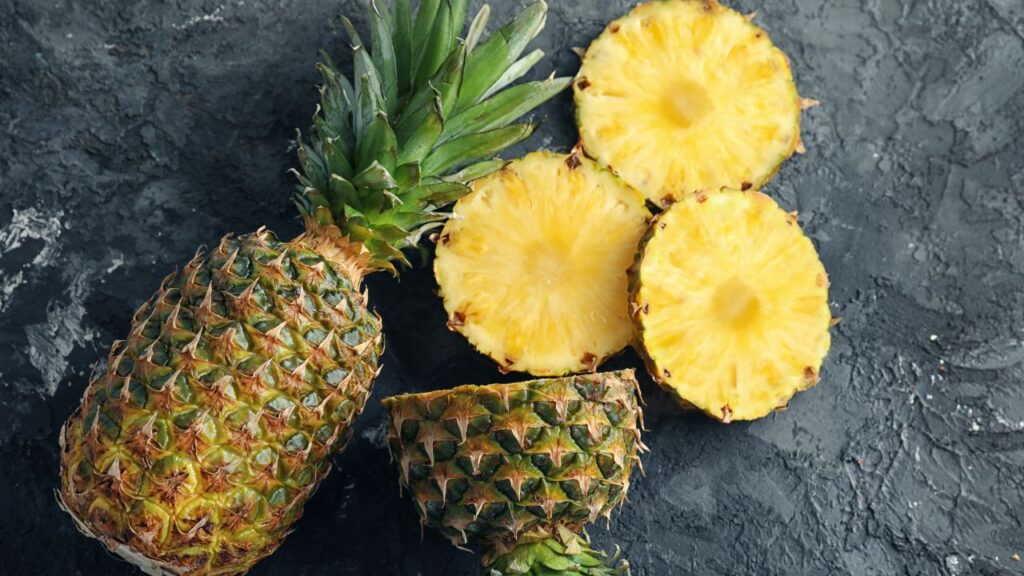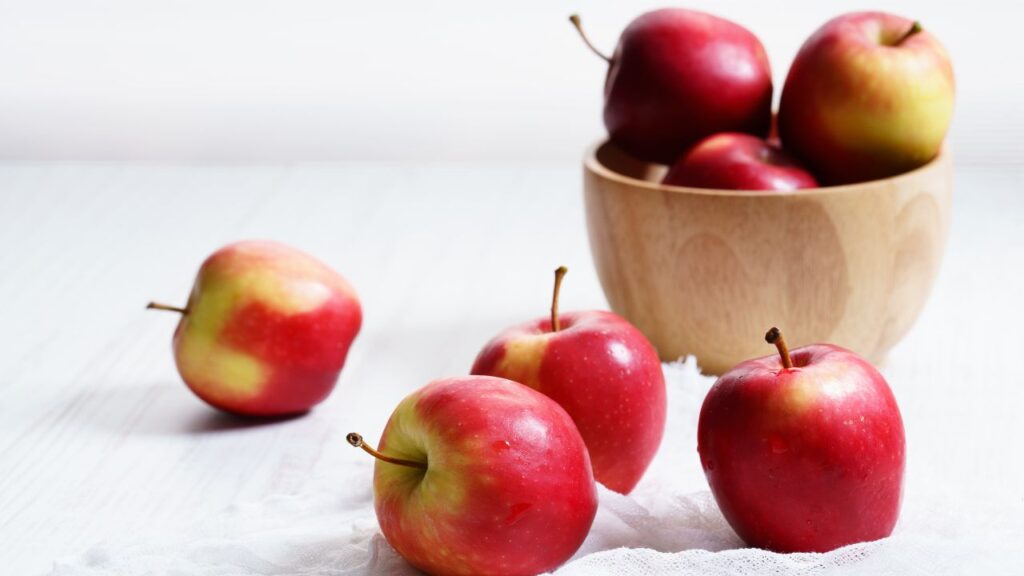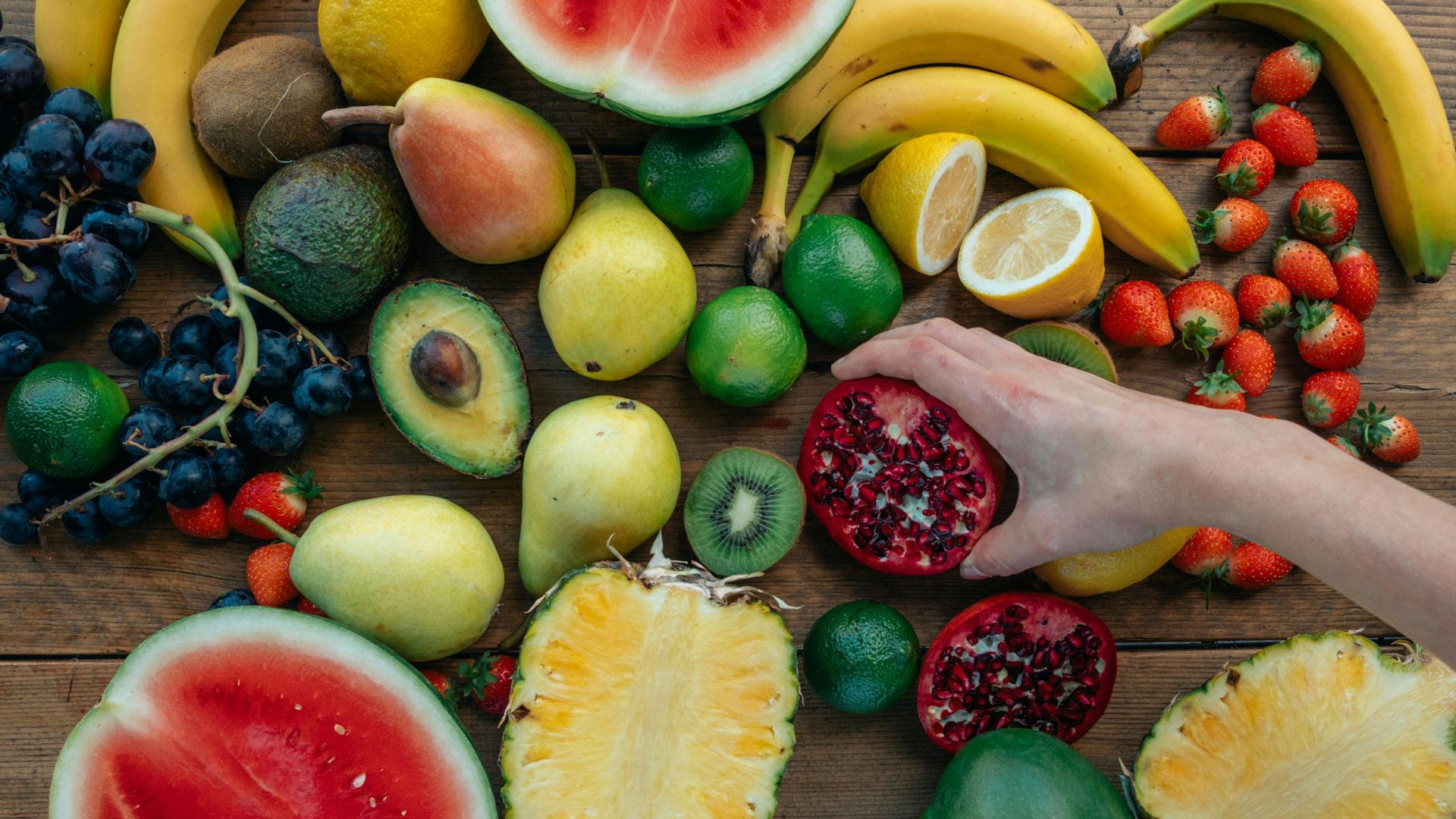Dealing with a cough can be frustrating. It disrupts your day, interrupts your sleep, and drains your energy. Finding relief is often a priority, and while medicines help, food choices also matter. Fruits, packed with essential nutrients, can be natural remedies.
They not only ease your symptoms but also support your immune system. Imagine biting into a juicy, nutrient-rich fruit and feeling your throat calm down. Sounds comforting, doesn’t it? Let’s explore how fruits can help you recover faster and stay healthy.
Fruits for Cough Relief
When you have a cough, certain foods, especially fruits, can make a significant difference. A diet rich in nutrient-dense foods like fruits is beneficial for your recovery process. Fruits are loaded with essential nutrients like vitamin C, which support your immune system. They also have natural properties to alleviate symptoms of cough and cold.
Citrus fruits, known for their high vitamin C content, can boost immunity. However, anecdotal evidence suggests avoiding them if you have a sensitive throat, as they might exacerbate symptoms.
Studies suggest that vitamin C reduces the severity and duration of severe cold symptoms, but has no significant effect on mild symptoms.
The right foods are crucial to your healing journey. While some fruits soothe your throat, others help loosen mucus and reduce inflammation. Other fruits like bananas and pomegranates, known for their medicinal properties, can soothe a sore throat and fight infections. Let’s dive deeper into specific fruits that are good for cough and their health benefits.
1. Pineapples

Pineapples are nature’s natural remedies for cough. They contain bromelain, an enzyme with powerful anti-inflammatory properties. Research shows that bromelain is believed to assist with respiratory issues related to allergies and asthma. It is also thought to have mucolytic properties, helping to break down and remove mucus.
Eating pineapples may relieve symptoms of persistent cough and support your immune system function. If you’re dealing with nasal congestion or a dry cough, a slice of pineapple or a glass of its juice can act as a natural decongestant. It helps clear your respiratory tract and promotes faster recovery.
Pineapple’s vitamin C content also boosts immunity, helping your body fight infections better. However, for those with histamine intolerance or sensitive stomachs, it’s best to consume pineapple in moderation.
Pineapple is also a refreshing fruit that can be enjoyed in many ways, such as in smoothies, salads, or on its own. Including pineapple in your diet not only helps with cough and cold symptoms but also provides essential nutrients that keep you energized and hydrated. Whether fresh or juiced, pineapple is an excellent food choice to add to your recovery routine.
2. Pomegranate

Pomegranates are rich in antioxidants and have antiviral properties. They are excellent fruits for cough and cold symptoms. Pomegranate juice, in particular, can relieve throat infections and reduce inflammation. Its antibacterial properties also support your body in fighting off upper respiratory tract infections.
Drinking pomegranate juice not only helps alleviate symptoms of a sore throat but also supports your digestive system. The essential nutrients in this fruit promote healing and improve immune function. Anecdotal evidence suggests it’s among the best foods for relieving cough symptoms naturally.
Pomegranates are also packed with fiber, which aids in digestion and helps keep your system running smoothly. Including them in your diet can provide long-term benefits beyond just easing a cough. Whether consumed as juice, seeds, or added to various dishes, pomegranates are a versatile and beneficial fruit that can enhance your health and recovery process.
3. Bananas

Bananas are gentle on the digestive system and provide energy, making them a suitable food choice during a cough. They are easy to digest and won’t upset your stomach. With their nutrient-dense profile, bananas help promote faster recovery.
Bananas also contain essential amino acids and vitamins that support your immune system. While they don’t directly loosen mucus, they help alleviate symptoms of a dry cough by soothing a sensitive throat. Including bananas in your diet can support your recovery process and make you feel better quickly.
Moreover, bananas are a rich source of potassium, an essential mineral that helps maintain electrolyte balance. This can be especially important when you’re feeling under the weather, as staying hydrated and replenishing lost minerals helps speed up the recovery process. Whether eaten alone or blended into smoothies, bananas are a simple yet effective addition to your cough recovery plan.
4. Kiwi

Kiwi is a powerhouse of vitamin C, which is vital for fighting infections. This citrus fruit supports your immune system and helps reduce cold symptoms. Its anti-inflammatory properties also assist in reducing congestion and mucus production.
Eating kiwi regularly can boost immunity and improve your body’s ability to recover from viral infections. Whether you’re dealing with a sore throat, sinus congestion, or a common cold, kiwi can be a beneficial addition to your diet. Avoid overripe kiwis, as they may raise blood sugar levels.
Kiwi is also rich in fiber, which can aid in digestion and help keep your stomach calm during a cough. This makes it an excellent choice if you want to keep your digestive system functioning smoothly while also supporting your immune response. Adding kiwi to smoothies, and fruit salads, or eating it raw ensures that you’re taking full advantage of its health benefits.
5. Strawberries

Strawberries are not just delicious; they are also nutrient-rich foods good for your health. Packed with vitamin C and antioxidants, they support your immune system function and fight infections. These fruits are excellent for reducing inflammation, which is often a symptom of cough and cold.
Eating strawberries can help loosen mucus and soothe your throat. They act as natural remedies for congestion-related diseases. However, if you have a persistent cough, it’s essential to monitor your food choices carefully. Strawberries are safe for most but should be consumed in moderation if you have a sensitive throat.
6. Watermelon

Watermelon is a hydrating fruit that helps you stay hydrated during a cough. Staying hydrated is key to relieving symptoms of a dry or sore throat. Watermelon’s high water content helps reduce mucus production and promotes faster recovery.
This fruit is also rich in essential nutrients, including vitamins and minerals, that boost immunity. Eating watermelon can help fight infections and support your body in recovering from cold and cough symptoms. It’s light on the digestive system and doesn’t trigger coughing, making it an excellent food choice for a sensitive throat.
7. Apples

An apple a day might keep the doctor away, even when you have a cough. Apples are rich in antioxidants, fiber, and vitamins, making them great for immune function. They are gentle on your throat and support the recovery process by reducing inflammation.
Apples also have antiviral properties that help alleviate symptoms of cough and cold. Eating apples regularly can improve your body’s ability to fight infections. Pair them with raw honey or herbal tea for added medicinal properties and health benefits.
Foods to Avoid and Soothing Alternatives
Certain foods can significantly affect your recovery when you have a cough. Eating spicy foods can worsen cough symptoms by triggering coughing and increasing mucus production. Spicy foods irritate the throat, and in cases of acute cough, this irritation can make symptoms more intense.
Moreover, these foods may raise blood sugar levels, which could impact your immune system’s ability to fight the infection. Foods like starchy and fermented vegetables can also upset your stomach, further complicating your recovery. It’s better to opt for milder, soothing alternatives, such as a hot cup of green tea or lemon juice, which can help relieve throat irritation without exacerbating the symptoms.
Some food items, like fried foods and dairy products, should also be avoided when managing cough and cold symptoms. Fried foods are high in unhealthy fatty acids that can increase mucus production and trigger coughing. Dairy products are known to thicken mucus, leading to more congestion and making it harder to clear the throat.
Instead, it’s best to consume nutrient-dense foods that support the immune system and avoid foods that can hinder your recovery process. Certain foods, such as bananas and pomegranates, offer better health benefits without worsening your cough or cold symptoms.
According to reports, when you’re recovering from a cough or cold, herbal tea and chicken soup are highly beneficial. A hot cup of herbal tea helps to increase mucus production, which can loosen congestion and clear out mucus.
Chicken soup, known for its comforting properties, acts as a natural decongestant and helps reduce inflammation in the throat. Both herbal tea and chicken soup are excellent for promoting faster recovery while alleviating common cold symptoms. These remedies hydrate, soothe, and support your immune system, helping you heal naturally.
Conclusion
Fruits are powerful allies in managing cough symptoms. They offer essential nutrients, promote faster recovery, and support your immune system. Incorporating a variety of fruits like pineapples, pomegranates, and kiwis into your diet can help alleviate symptoms and improve overall health. Avoid spicy foods and processed foods during this time, as they may trigger coughing or upset your stomach.
Choosing the right foods, including nutrient-dense fruits, can make a big difference. Whether it’s relieving a sore throat or fighting upper respiratory tract infections, fruits can provide much-needed relief. Stay hydrated, eat the right fruits, and let nature aid your healing journey.
















